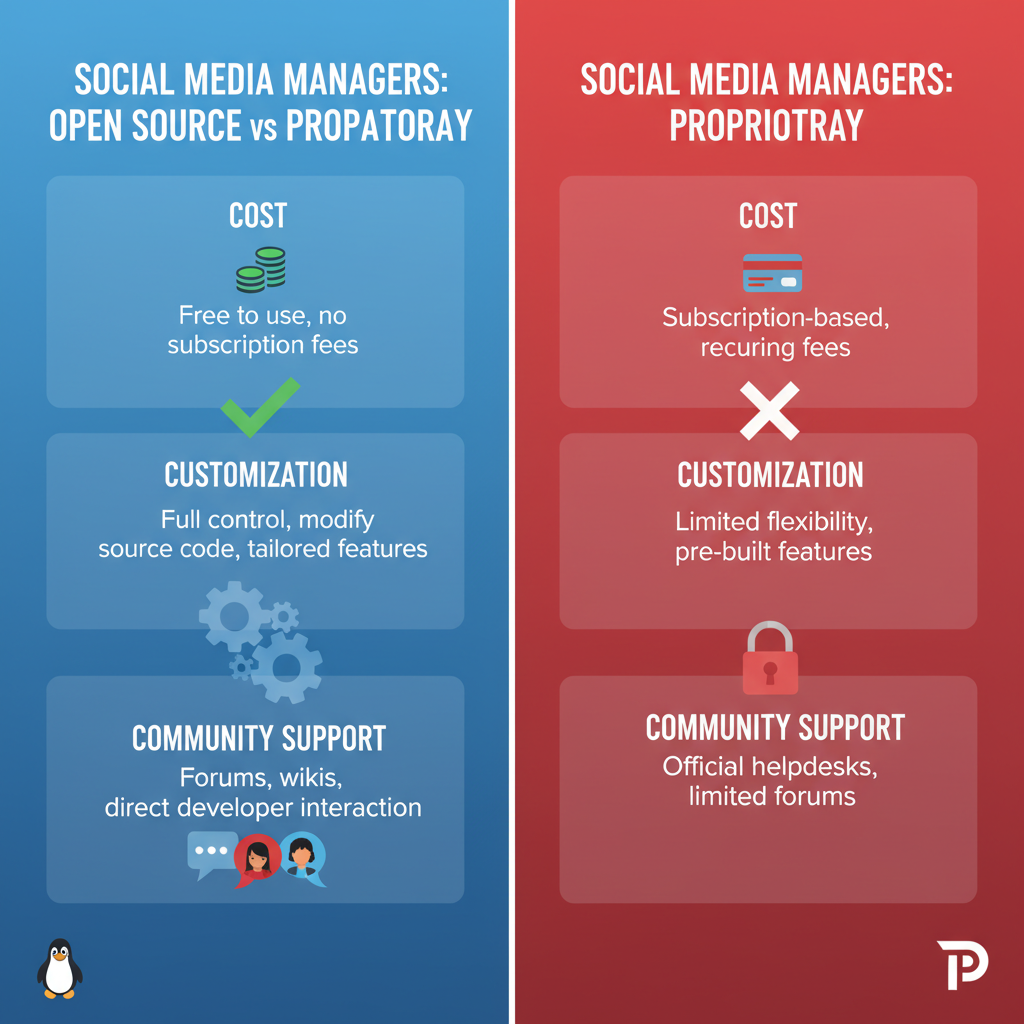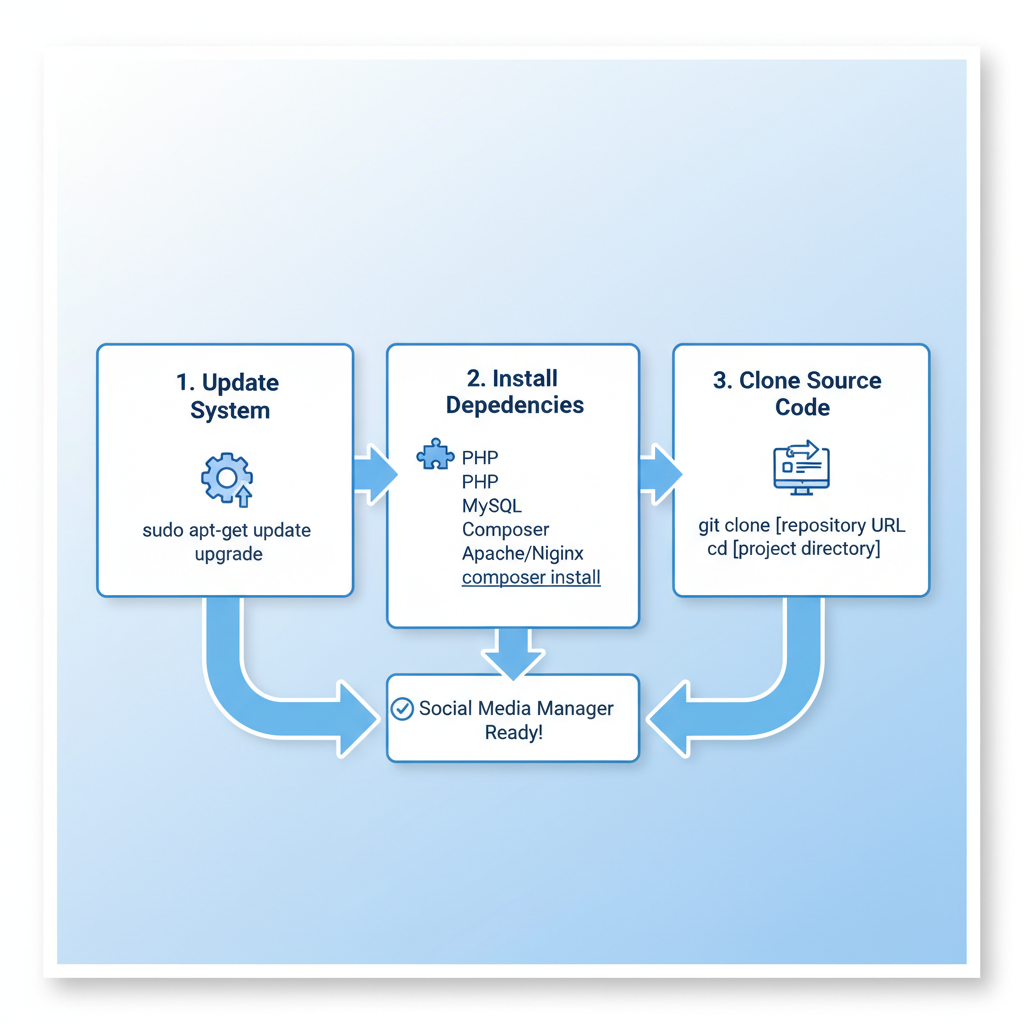Top Open Source Social Media Managers for 2024
Discover the top open source social media managers for 2024, with features, benefits, and platform support to boost digital marketing efficiency.

Introduction to Open Source Social Media Management
In today’s fast-paced digital marketing environment, social media plays a pivotal role in brand growth, audience engagement, and customer service. Many businesses default to proprietary tools for managing social channels, but open source social media managers are increasingly becoming the go-to alternative for those seeking flexibility, transparency, and cost control.
An open source social media manager is software whose source code is publicly available, allowing modification, redistribution, and enhancement. This level of transparency empowers organizations to tailor features to their exact needs without waiting for vendor updates or incurring expensive licensing fees.
Key benefits include:
- Freedom to customize features to your workflow
- No ongoing subscription costs
- Strong community support through collaborative development

---
Advantages Over Proprietary Tools
Choosing an open source social media manager offers clear advantages over proprietary counterparts:
- Cost Savings
- Proprietary tools often come with high monthly or annual subscription fees. Open source alternatives usually have no licensing costs, though hosting or optional support services may involve expenses.
- Customization & Flexibility
- Modify the source code to add features, enhance performance, or integrate seamlessly with your systems without limitations.
- Community & Transparency
- Issues can be identified and fixed by anyone in a global contributor network. Code transparency builds trust and minimizes hidden data collection or unexpected features.
- Long-Term Viability
- Active communities can maintain and evolve the tool indefinitely, independent of vendor business changes.
---
Core Features to Look For
When assessing the best open source social media manager for your team, focus on these essentials:
- Multi-Platform Posting — Schedule and publish to Facebook, Twitter/X, LinkedIn, Instagram, and niche networks simultaneously.
- Scheduling Tools — Calendar views, multiple time zone settings, and automated posting.
- Analytics & Reporting — Detailed insights on engagement rates, reach, clicks, and follower growth trends.
- Collaboration — Role-based permissions, multi-user support, and workflow management.
- Content Curation — Integration with RSS feeds, tagging, and draft management.

---
Top Open Source Social Media Manager Tools for 2024
Below is a comparison of popular and actively maintained open source options:
| Tool Name | Main Features | Supported Platforms | Pros | Cons |
|---|---|---|---|---|
| Hootsuite Alternative: Elgg Social | Customizable social networking framework, plugin architecture | Facebook, Twitter, LinkedIn (via plugins) | Strong developer community; modular design | Steeper learning curve; requires hosting |
| Fossasia Yay! | Open source posting scheduler, analytics dashboards | Twitter, Facebook, Mastodon | Lightweight; easy installation | Basic analytics compared to bigger players |
| Postleaf | Markdown editor, multi-channel content distribution | Email, RSS, social networks via APIs | Minimalistic; fast performance | May require custom API scripts for some networks |
| Friendica | Federated social networking, wide federation support | Mastodon, Diaspora*, Twitter | Strong privacy focus; federation-friendly | Interface may feel outdated to some users |
---
Installation and Setup Basics
Open source social media managers are commonly deployed using one of two models:
- Self-Hosted
- Install the software on your own server or VPS.
- Offers complete control over data and customization.
- Requires server administration skills.
- Cloud-Hosted (Community or Vendor)
- Managed hosting is provided by developers or third parties.
- Faster to deploy but less customizable.
Example: Self-Hosting on Ubuntu Server
## Update system
sudo apt update && sudo apt upgrade -y
## Install dependencies (example for PHP-based app)
sudo apt install apache2 mysql-server php php-cli php-mysql php-curl -y
## Clone source code
git clone https://github.com/example/social-manager.git /var/www/social-manager
## Configure Apache
sudo nano /etc/apache2/sites-available/social.conf
## Enable site
sudo a2ensite social.conf && sudo systemctl reload apache2---
Integration Tips
Maximize value by integrating your open source social media manager with other systems:
- RSS Feeds — Automate posting from blogs or curated sources.
- CRM Systems — Sync audience data for precision targeting.
- Marketing Automation Tools — Coordinate consistent messaging across multiple channels.
Integration Example: RSS Feed Posting
channel->item as $item) {
// Build post payload
postToSocial($item->title, $item->link);
}
?>---
Security Considerations
Security should be a top priority when operating social media accounts through open source tools:
- Keep Software Updated — Apply updates quickly to patch vulnerabilities.
- Secure Authentication — Implement OAuth and two-factor authentication.
- Data Encryption — Use SSL/TLS for traffic; encrypt sensitive credentials.
- Role-Based Access Control — Limit access based on responsibilities.
- Audit Logs — Maintain logs for compliance and tracking.

---
Scalability and Performance Optimization
Ensure your open source social media manager scales as your team or audience grows:
- Database Optimization — Use indexing, caching layers.
- Load Balancing — Distribute requests across multiple servers.
- Asynchronous Processing — Queue posts to prevent interface delays.
- CDN Integration — Speed up media delivery worldwide.
For large-scale deployments, clustering or container orchestration (e.g., Kubernetes) can handle traffic spikes effectively.
---
Community Resources and Contribution Opportunities
Open source thrives on community participation:
- Forums & Discussion Boards — Get help and share best practices.
- GitHub/GitLab Issue Trackers — Submit bug reports and feature requests.
- Documentation Wikis — Contribute how-to guides.
- Translations — Help localize the interface for global usage.
Pro Tip: Engage regularly with the community to stay ahead of updates, feature releases, and security advisories.
---
Conclusion and Future Trends
Open source social media managers deliver unmatched flexibility, transparency, and cost savings. Adoption is rising in 2024 with the growth of federated networks, AI-assisted content creation, and decentralized hosting models.
For businesses, nonprofits, and influencers seeking control without vendor lock-in, leveraging open source solutions is a smart strategic choice. Looking ahead, expect more integrations, robust mobile experiences, and advanced analytics powered by machine learning.
By blending technical adaptability with strong community collaboration, open source social media managers can outpace proprietary competition in innovation and scalability.
---
Ready to explore? Choose an open source social media manager that matches your goals, join its community, and start customizing your way to more effective social engagement.




